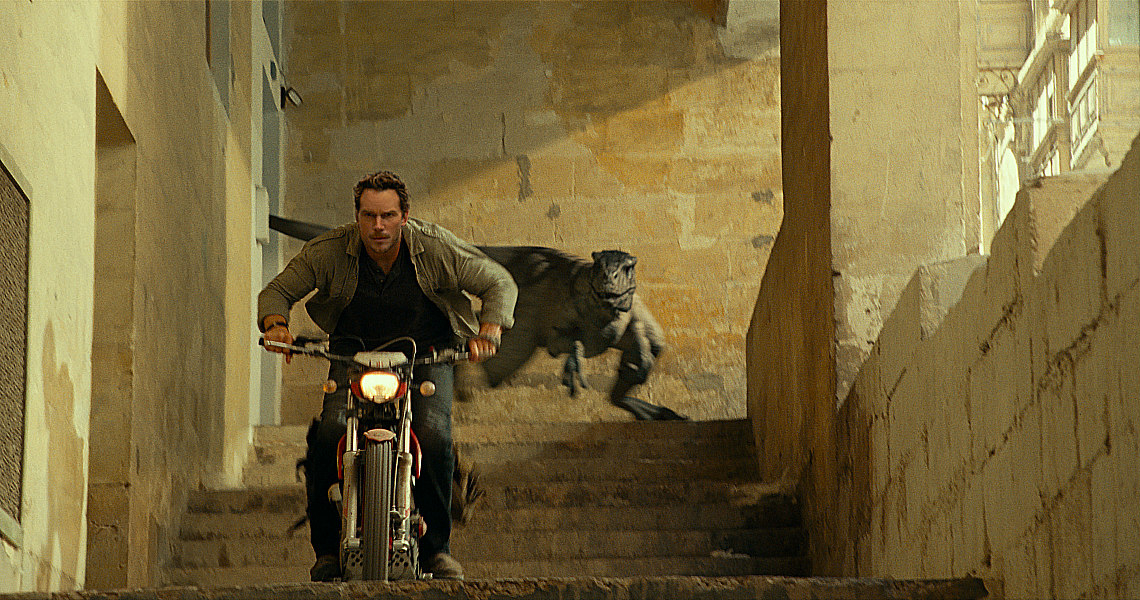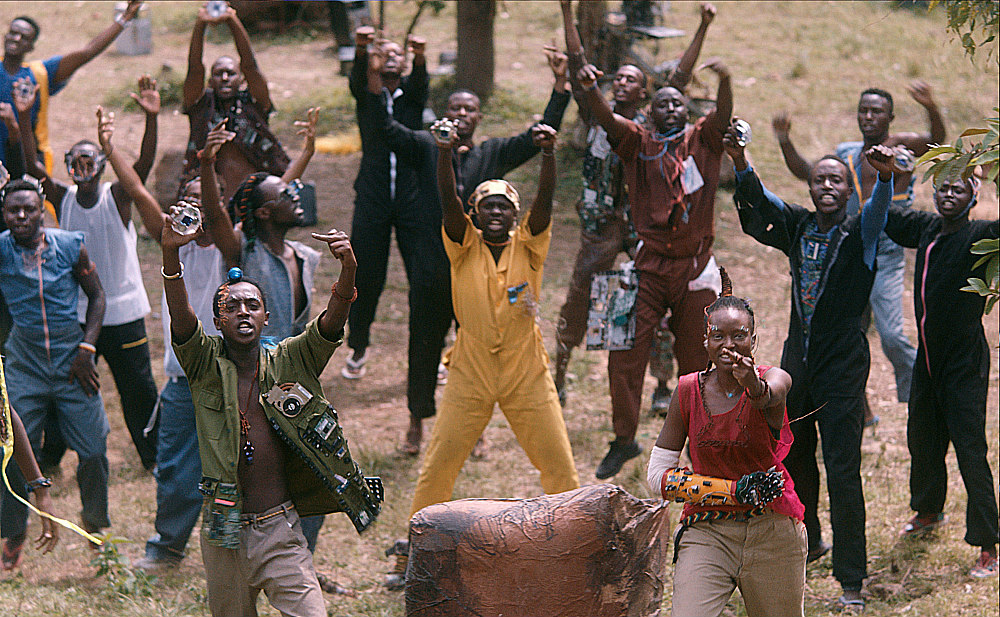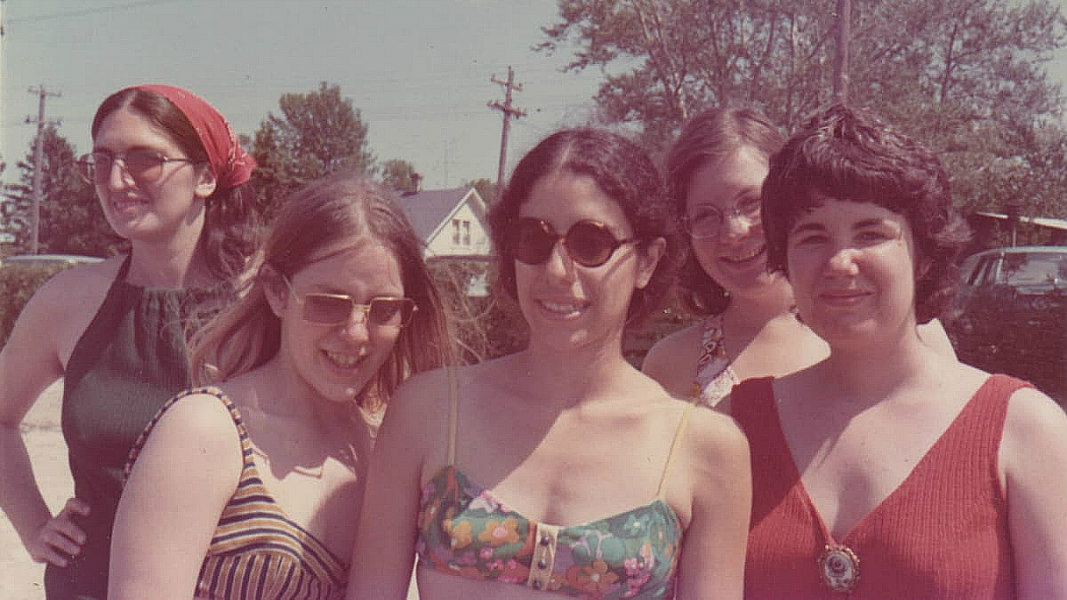The summer is finally going to the movies. The Jurassic dinosaurs are about, Lightyear is next and Elvis isn't far behind. I'm looking forward to Jazz Fest with loads of New Orleans music when it expands next week beyond that one theater in Toronto.
Meanwhile, we have these …
Jurassic World Dominion: 3 stars
Hustle: 3 ½
Neptune Frost: 3 ½
The Janes: 4
The Shepherdess and the 7 Songs: 2 ½
JURASSIC WORLD: DOMINION: There's too much here. This is not only the longest of these Jurassic films, the 6th in the series by the way, its got action that keeps on going and going. One encounter with these modern-time dinosaurs will come to a heart-pounding climax, and another starts up. Survive a truck that's rolled; a plane that's chewed, and something else happens, and then something else. It feels like Colin Trevorrow, the director and co-writer, threw in everything he could think of. It's not that it becomes tiring to watch, it's too exciting for that, but it loses credibility. You can see how it was built. And that undercuts the environmental message, that one character states like this: “We act like we're alone here, but we're not.”

The early going is most effective. Dinosaurs now roam anywhere (they were released last film). They don't terrorize cities like a Godzilla. They just live in the woods and don't bother you, unless you get too close to a mother's baby or encroach on their habitat. But there are poachers and a black market, illegal breeding, even underground dogfight-like shows. Characters from the first film (Laura Dern, Sam Neill, Jeff Goldblum) come together again to investigate. Others from later films (Chris Pratt, Bryce Dallas Howard) are back too. Chris pets a small dinosaur like a pet dog and in a great scene filmed near Kamloops, B.C. ropes a big one like a cowboy. Also back is a guy who was minor in film #1. He's now played by Campbell Scott and heads up the genetics developer BioSyn which started this dinosaur revival in the first place. They're now breeding locusts so they can sell farmers a special pesticide. They want to control food production all over the world. That takes the story into comic-book territory.
Teenager Maisie Lockwood becomes a prime target for reasons too complicated to explain except that BioSyn deems her “the most valuable intellectual property on the planet.” Much of the action is to keep her safe. But connecting all these story lines is shaky at best. The work of scientists is judged—one has regrets—and who knew the CIA has a Dangerous Species Division. Don't think about it. Dig the sights in several countries and the action. (In theaters everywhere) 3 out of 5
HUSTLE: Adam Sandler has a spotty record in his movie career but don't pass up this one. It's bright and lively and you don't even have to be a basketball fan to enjoy it. Fans will be extra delighted though because it's adorned with men from the sport they'll recognize. Men like Shaq, Seth Curry, Dirk Nowitzki, Allen Iverson, Charles Barkley (now a broadcaster), coaches and even owners, like Mark Cuban. And a lot of current players. LeBron James is a co-producer and probably used his status to bring them in.

One of them, a journeyman named Juancho Hernangómez, currently with the Utah Jazz, plays the second lead, a Spanish kid that Sandler, as a scout, finds and wants to recruit for the Philadelphia 76ers. But Ben Foster, as the owner and son of the original boss (Robert Duvall) blocks him out of spite. The drama shows Sandler's efforts anyway, culminating in an event that apparently is bigger in football than in basketball - a caveat that is for the more knowledgeable. The film is perky, with a snappy pace, thanks to Jeremiah Zagar's direction, and has all the drama you need in these movies with a sports theme. It's light but fun. Queen Latifah plays Sandler's wife and Heidi Gardner is the owner's sister. (Netflix) 3 ½ out of 5
NEPTUNE FROST: Here's a blast against colonialism and exploitation in Africa that comes with a huge imaginative drive and lots of music. It's by Saul Williams, a poet, rapper and actor from the U.S. , co-directing with Anisia Uzeyman, from Rwanda, and it speaks to almost anywhere on the continent. In fact, it was filmed in neighboring Burundi. It's got high and low technology, Afro-Futurism and a very strong voice but says its most pungent words in song. “We are not hidden. We are ignored,” the film says through one character and with a dream-world of lights and graphics that comes on now and then. “I was born in my 23rd year” says a narrator. That's when she came to realize what was going on. Men are forced to work as miners, what they dig up goes into iPhones and modern technology, but few who use the devices know that. An “authority” controls the country, puts down student demonstrations and keeps the men working.

Along with imperialism, the film attacks homophobia. The main character, Neptune, appears as a man at first (played by Elvis Ngabo) and then as a woman (Cheryl Isheja). She connects with an escaped miner (Bertrand Ninteretse ), first in dreams, then for real, and their protests join up. There's vibrant music, with drums throbbing and the film is invigorating in both sound and its visuals. And there are Canadian connections - the Indigenous collective A Tribe Called Red helped produce it. Ninteretse, who goes by the name "Kaya Free" has been living in Regina since then. And according to one character most of the mining companies digging in that part of Africa are based in Toronto. Maybe, but the Russians and Chinese are busy too and the film is a loud, tuneful middle finger. (In two theaters now: Vancouver's Cinematheque and Regina's Mayfair and Toronto next month) 3 ½ out of 5
THE JANES: Once again. Absolutely timely. While we wait to hear whether Roe vs Wade and the right to legal abortions will be reversed in the U.S., here's a stunning documentary about the issues. It's history but could be current. And it's candid and passionate. It's the story of a group of women in Chicago, 50 years ago, who provided abortions because they saw the need. If not them, organized crime would have, and did. Graduates of the anti-war and civil rights movements, they recognized that women deserved rights over their own bodies. They found a few doctors, advertised in alternative papers and on bulletin boards to “Call Jane” and helped women get the procedure. Chicago, one of them recalls “was a town where people did stuff.”

They have gray hair now and wrinkles but their stories in new interviews are compelling and they tell them with pride. They had “a philosophical obligation,” one says, “to disrespect a law that disrespected women.” That attitude runs through all their stories but so does the tension of what they were doing. Security and secrecy where crucial. A big setback came when they found out that one of their “doctors” (the most adept at abortions) wasn't a doctor at all. In a new interview he talks candidly and doesn't apologize. But the women had to adjust: they started performing the abortions themselves. Eventually they were found out and arrested. They state their case though. The need was there: 11,000 abortions over five years prove it. The film by Emma Pildes and Tia Lessin debuted at Sundance.(Streaming on CRAVE) 4 out of 5
THE SHEPHERDESS AND THE SEVEN SONGS: It's a sociological study, an ethnographic examination, a fairy tale and a rich drama about women's rights in rural India. At least a part of it, just outside the disputed region in the north, Kashmir. It plays like a folktale, and in fact was written as such by the renowned author Vijaydan Detha. The feminist theme is illustrated by the story of one who has few rights and asserts her power through subterfuge. Laila was won in a test of strength by a man visiting Kashmir, coerced into marrying him and then taken to his village.

“It's a sin to be born beautiful in a poor society,” she's told. We see why. The local station master (i.e. police) comes on to her. Her husband doesn't notice. The cop's deputy comes on too and she tricks them all. Three times she arranges a tryst with the deputy but each time contrives to bring her husband along. It's not only a trick against the one guy but also a test to see if her husband is strong enough to protect her. Above all it's a sign of how clever she is. And it seems timeless: originally it feels 100s of years old. Then a truck drives by. And there are news reports about protests in Kashmir over a new government law. The film it turns out is absolutely current. The presentation is archaic but the songs propel it and Navjot Randhawa as Laila is endearing. (Art houses including Cinematheque Vancouver) 2 ½ out of 5


Comments